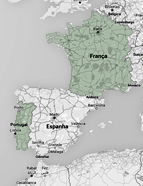

Since, for the most part, we only have access to the correspondence (or at least part of it) sent to the secretary of the SPHC, it is not possible to find answers to fundamental questions about this institution. What was the reason for its demise? And if, as stated by Magalhães Godinho, this was due to the Civil Government's rejection of its legalization request, what was the reasoning advanced? What support did the Institut Français au Portugal and the Société Marc Bloch give to the SPHC? These and other questions can only be answered with documentation that is not yet publicly available.
Regardless of the answers to these questions, the project's failure was reflected in the limited influence of the different paths taken by the Annales in Portugal until the 70s. Apart from a few historians who remained in Portugal, this influence was seen above all in those who opted or had the opportunity to work in French research institutions, such as Magalhães Godinho, Joaquim Barradas de Carvalho and José Gentil da Silva, treasurer of the SPHC and one of Magalhães Godinho's students in the 1940s, who went on to work with F. Braudel.
References to the SPHC in essays or memoirs on Portuguese historiography during the Estado Novo period are scarce or non-existent. And while this is partly due to the little importance it objectively came to have, on the other hand this absence is surprising, if only for the visibility of the Annales in Portugal from the 70s and 80s onwards. Apart from a few references by Magalhães Godinho, there was mainly silence and even a depreciation of its importance (Saraiva, Crónicas [Chronicles], 2004, p. 962).
